|
|
|
|
Nau mai, haere mai.
And so the electricity market continues to deliver shocks. The prime minister has acknowledged we are in an “energy security crisis” and promised to throw the government’s resources at every potential solution. But it’s far from a simple fix.
As Alan Brent explains today, the current supply and demand imbalances sit against a backdrop of climate change, greater risk of dry winters, and even higher projected demand for electricity.
National commitments to decarbonise the economy, of course, mean even more electricity will be needed – from renewable sources. So will New Zealand have that extra capacity, either being built now or planned?
In theory, yes. Solar, wind and hydro will eventually be able to meet that increased demand, and allow the country to achieve its fossil fuel phase-out in the process. But we’re still not developing sufficient battery storage to smooth daily and seasonal fluctuations.
That will likely mean winter price spikes will be a feature of the energy market for the foreseeable future. As ever, we will also need a steady supply of political will and good planning.
|

|
Finlay Macdonald
New Zealand Editor
|
|
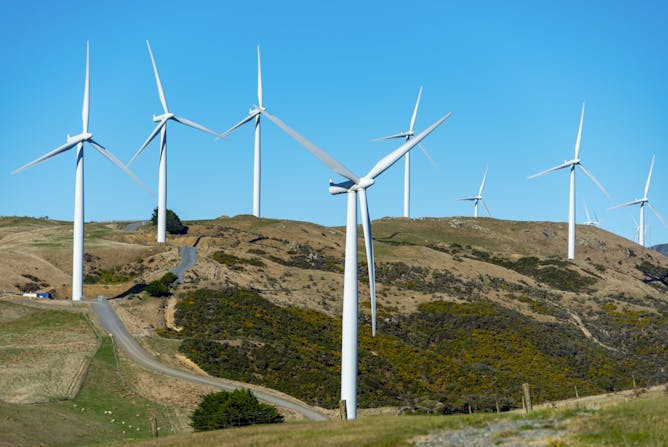
Alan Brent, Te Herenga Waka — Victoria University of Wellington
The good news is that New Zealand is on track to meet electricity demand with renewable generation by 2030. The less good news is that winter price spikes are still likely.
|

Geoffrey Miller, University of Otago; Miriam Neigert, University of New England
In theory, appealing to voters in their own languages makes good political sense. So why don’t more candidates do it on the campaign trail?
|

Amanda Reilly, Te Herenga Waka — Victoria University of Wellington; Joshua A.T. Fairfield, Washington and Lee University
Advances in technology mean employers can keep tabs on workers long after the workday has finished. New Zealand needs to follow global examples and strengthen workers rights beyond the workplace.
|
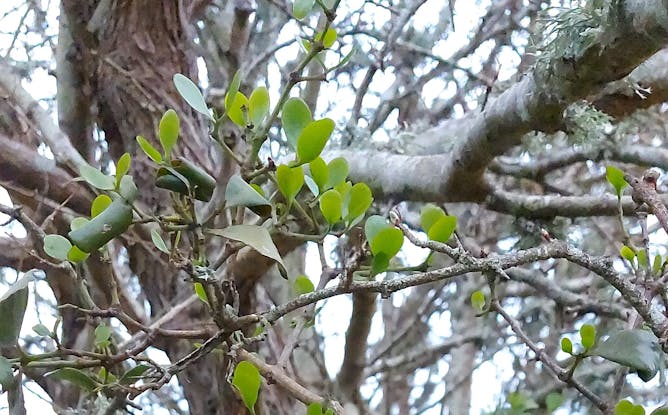
Janice Lord, University of Otago; James Crofts-Bennett, University of Otago
The benefits of leafy mistletoes for wintering arthropods include shelter from extreme weather and hungry birds as well as a more humid microclimate to avoid desiccation.
|
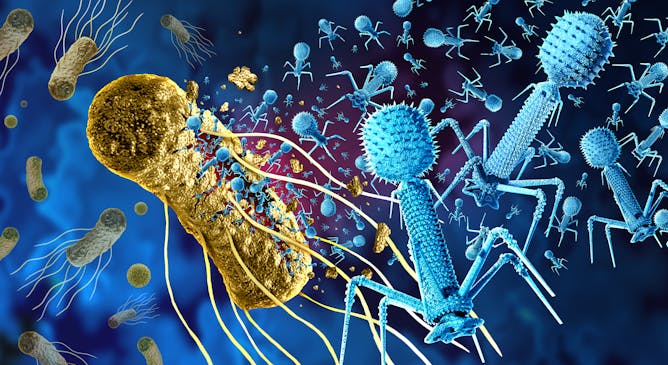
Nils Birkholz, University of Otago
Viruses known as ‘phages’ might become an essential tool, as antibiotic-resistant bacteria threaten conventional remedies.
|
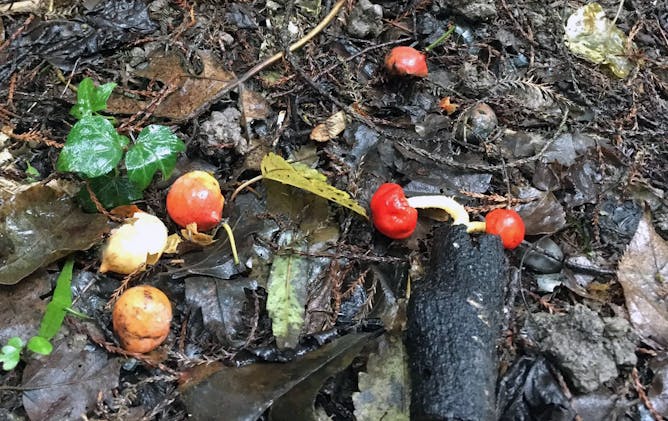
Jamie Wood, University of Adelaide; Amy Martin, University of Auckland, Waipapa Taumata Rau; Anne Gaskett, University of Auckland, Waipapa Taumata Rau
With no land mammals to eat and disperse them, New Zealand’s truffle-like fungi mimic fallen fruit to attract birds. But with so many of those birds now extinct, can ecosystems adapt?
|

Gergely Toldi, University of Auckland, Waipapa Taumata Rau; Mariana Muelbert, University of Auckland, Waipapa Taumata Rau
The infant formula market in Australia and New Zealand is valued at about AU$500 million annually. But far less money goes towards supporting mothers to breastfeed.
|

Siobhan Harvey, Auckland University of Technology
From Lord Byron to Benson Boone, from Tennyson to TikTok, poetry endures because it speaks from – and to – the human heart, mind and imagination. AI might replicate it, but it can never replace it.
|

Aaron Gilbert, Auckland University of Technology
Four Australian banks dominate the banking sector in New Zealand. There has long been concern about whether consumers are getting the best deal, and yet 54% have never changed banks.
|
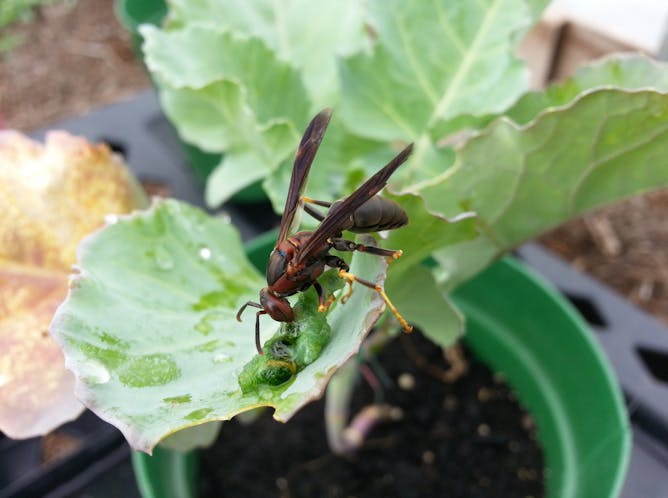
Jennifer Jandt, University of Otago; Amy Toth, Iowa State University
Research shows wasps are active and useful predators of caterpillars on crop plants, but we need to know more about their full biocontrol potential.
|
From our foreign editions
|

Mark Beeson, University of Technology Sydney
The lack of debate, not to say outrage, about the sheer cost of the AUKUS project is perhaps the most remarkable feature of the sorry submarine saga.
| |

Andrew Taylor, Charles Darwin University; Supriya Mathew, Charles Darwin University
For decades it seemed as if nothing could change the trajectory of population growth. But a huge change is looming.
|
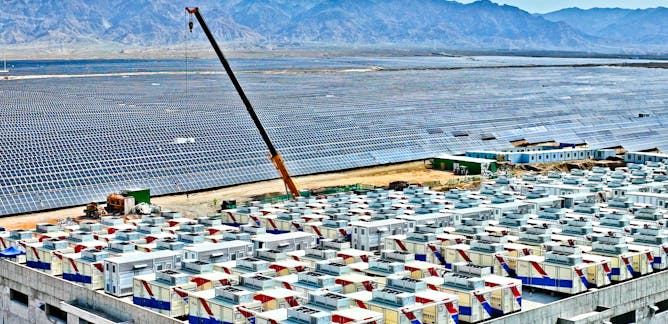
Gbenga Apata, University of Johannesburg
To harness its abundant sunlight and wind, South Africa needs renewable energy storage systems to store this clean power. The government must encourage companies to set up giant battery systems.
| |

Stig Jarle Hansen, Norwegian University of Life Sciences
Al-Shabaab has grown rich and retained influence over much of Somalia.
|

Lynne Gauthier, UMass Lowell; Jiabin Shen, UMass Lowell
Here’s how your brain visualizes scenarios that you’re not actually looking at with your eyes.
| |

Eric Rosenbach, Harvard Kennedy School
The Pentagon is preparing for what it calls ‘great power competition’ among the US, Russia and China.
|
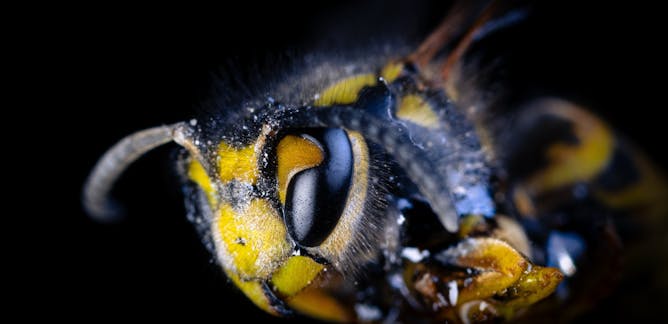
Seirian Sumner, UCL
Scientists know why there aren’t as many wasps around this year - but we don’t have much data on what is happening long term.
| |

Helen Owton, The Open University
Cricket is physically and mentally demanding and draining – and it has a suicide problem. Here’s why.
|
|
|
| |
| |
| |

|
| |
| |
| |
| |
| |
| |
|
|
|
|
|
|
|